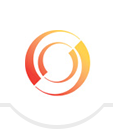In the United States, more than $650 billion a year is lost in productivity because of unnecessary interruptions—predominantly mundane matters—according to research firm Basex. A big chunk of that cost comes from the time it takes people to recover from an interruption and get back to work.
Ever wonder how interruptions affect your sales goals? In working with sales people, I find that email is one of the biggest offenders when it comes to office interruptions. To prevent email from interrupting your focus… and future sales… here are 10 tips to help you maximize this all-important tool.
- Avoid checking your Email the first hour of the day. Don’t even turn it on. Instead, work on another project that requires your energy, focus and attention. I call this the Power Hour. One sales person I worked with discovered that he could reach more prospects via phone from 8-9 a.m. because people were not yet in meetings. By avoiding “Email engagement” the first hour of your day you’ll be able to focus on important tasks without your mind wandering towards the Email Inbox.
- Address one subject per Email. People tend to file Emails or refer back to them based on the subject in the body of the E-mail. Once you change a subject on a strand of Emails, it gets confusing and hard to recall.
- Create specific and descriptive subject lines. This will help others recall your Emails easily and respond more quickly. A subject line such as “Monday Sales Meeting” can be improved by changing it to read “Agenda for 9-21-09 Sales Meeting”. Some Email programs such as Microsoft Outlook allow you to manually change the Subject Lines of receivedEmails. This works great when you want to include information in a subject line for your own reference later.
- Keep Emails brief. Don’t get caught up in chit-chat unless it is a personal Email. If it takes longer to compose an Email than it would to call, then pick up the phone. You can recap important points of your conversation afterward via Email.
- Get to the point. Within the first 2 lines say what the purpose of the Email is. Use bullets or numbers to itemize points or requests. People skim a lot these days and using numbered or bulleted formats allows them to grasp right away what the Email requires of them.
- When forwarding an Email, edit first, deleting unnecessary information. Your recipients will appreciate only receiving the pertinent information.
- Choose recipients wisely and avoid copying unnecessarily. A common mistake people make is hitting “Reply to All” vs. “Reply”.
- Avoid using Email for urgent items. If it’s a rush item, use the phone. And remember that the more Emails you send, the more you shall receive.
- Don’t use Email for sensitive items. Our communication is made up of 60% body language, 33% tone of voice and only 7% are the actual words we speak so Email is removing 93%. If you’re quoting pricing and you think there’s the slightest chance that something could be misinterpreted, pick up the phone to discuss prior to hitting send. Likewise if you think your Email might be upsetting in any way to the recipient, pick up the phone or visit them in person if possible.
- Shut off ALL notification sounds and symbols for the arrival of new Emails. Instead of turning your attention to your screen every time an Email arrives, batch your Email processing to 3-5 times during your day. Be sure to check Email 30-45 minutes before the end of the day so you have time to respond to any urgent requests.
